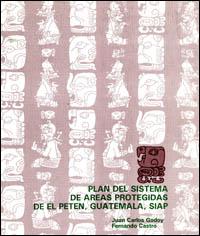

Related content
The state of protected and conserved areas in Eastern and Southern Africa : second edition
This second edition of The state of protected and conserved areas in Eastern and Southern Africa builds on the first edition published in 2020 and provides updates on how the region is managing and governing protected and conserved areas, effectively providing a regional update on the progress towards the achievement of Target 3 of the Global Biodiversity framework. While the first edition was published in relation to the previous global targets (in particular Aichi Target 11), this edition covers progress on the common indicators around management effectiveness and governance and expands to include additional information that corresponds to the revised target on PCAs (Target 3).
Economic aspects of community involvement in sustainable forest management in eastern and southern Africa
Produced by IUCN's Eastern Africa Programme, this publication aims to investigate the extent to which communities have been provided with economic incentives to become involved in sustainable forest management in Eastern and Southern Africa, and how far perverse incentives and disincentives encouraging forest degradation and loss have been overcome. This study concludes that there is an urgent need to provide economic incentives, and it highlights a number of policy recommendations.
Using the IUCN red list criteria at the national level : a regional consultative workshop for South and Southeast Asia… : proceedings and recommendations
A regional workshop was held to develop a shared understanding of the IUCN global Red List criteria, threat categories and the process of listing species according to the threat of extinction with an emphasis on lessons learned, key constraints and priority needs. The report presents country status reports from Cambodia, India, Indonesia, Lao PDR, Malaysia, Nepal, Pakistan, Philippines, Sri Lanka, Thailand and Vietnam, plus conclusions and recommendations.
Land, people and forests in eastern and southern Africa at the beginning of the 21st century : the impact of land relations on the role of communities in forest future
The way in which forest land is owned directly influences the status of the forest, its condition and the way in which it is managed. The greater the security of local forest tenure, the stronger the interest and will of the community towards its security. One of four papers commissioned by IUCN towards building a comprehensive profile on the subject of community involvement in forest management in eastern and southern Africa, this publication addresses the function of property relations and State-people relations in matters of governance and management. The study is comparative in nature, with a continuing examination of commonality and difference in the handling of property rights in respect of rural communities.

